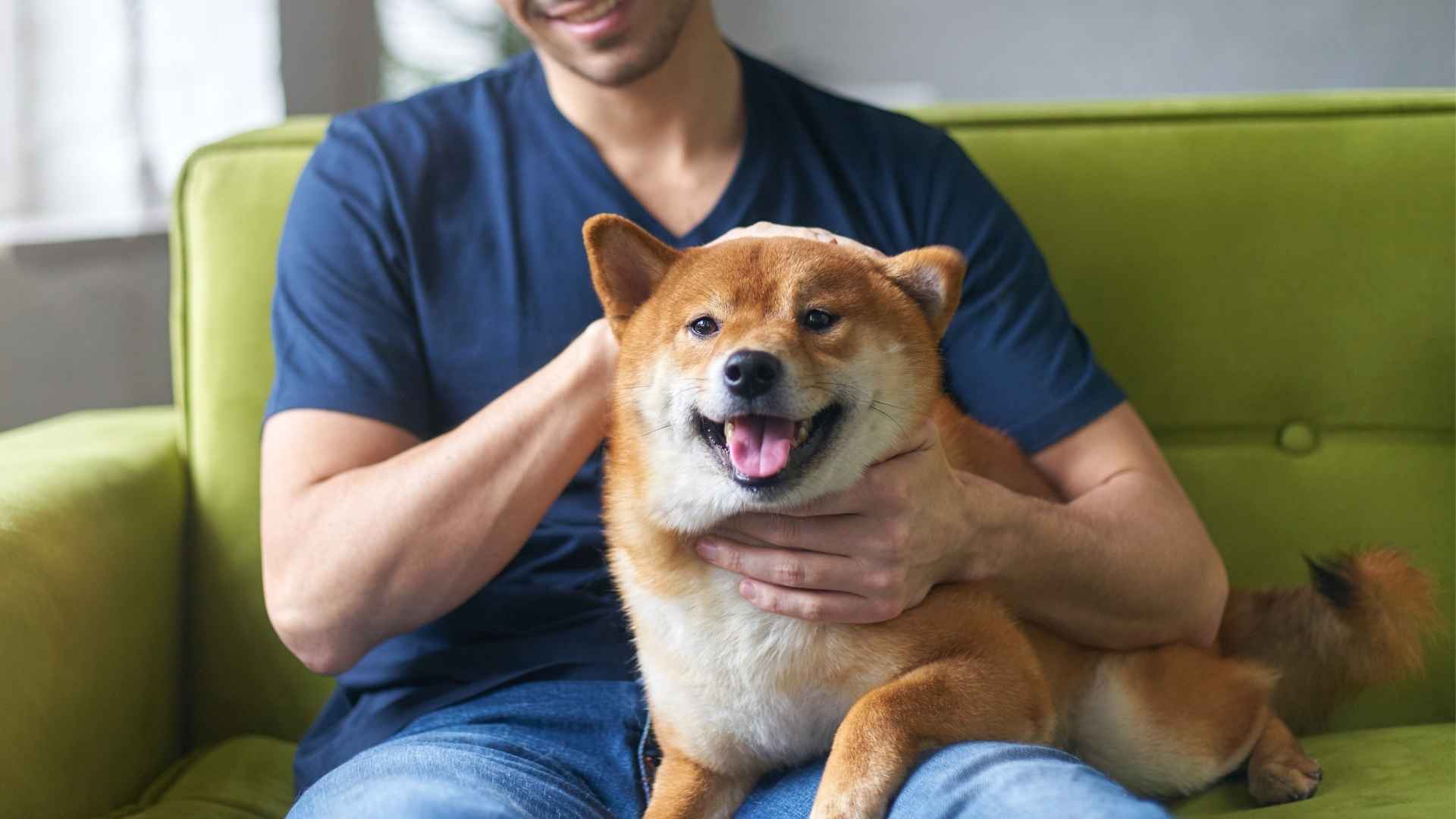Ever notice how some dogs glow in calm, adult-only spaces and seem uneasy around kids? Research and expert insights reveal that there are breeds which naturally gravitate toward adult companionship over the hustle and bustle of family life.
It’s not about avoiding children—it’s about harmony. Adults tend to move more deliberately, speak more softly, and interact more predictably. That resonates deeply with breeds bred or temperamentally inclined toward serenity. According to a study, certain breeds inherited their behaviors from genetics, not playful tolerance of roughhousing.
What this really means is that for some dogs, adult companionship isn’t just a preference—it’s their happy place. Picture a dog that thrives on quiet evenings, steady rhythms, and respectful space. That’s exactly the kind of connection these breeds form.
Dog Breeds Who Prefer Adults Over Kids
Here are the most popular dog breeds:
1. Afghan Hound
The Afghan Hound, with its flowing coat and statuesque silhouette, stands out as one of the most intelligent and enigmatic dog breeds. Revered for their regal bearing, Afghan Hounds carry themselves with a calm, almost aristocratic confidence that suits adults seeking a more refined and low-key companion.
They tend to bond closely with their human and are loyal, often favoring quiet interaction over loud play, which makes them the best dog breed for homes without small children or other pets that might interrupt their space. What sets them apart, though, is their mix of aloofness and intense loyalty once trust is earned.
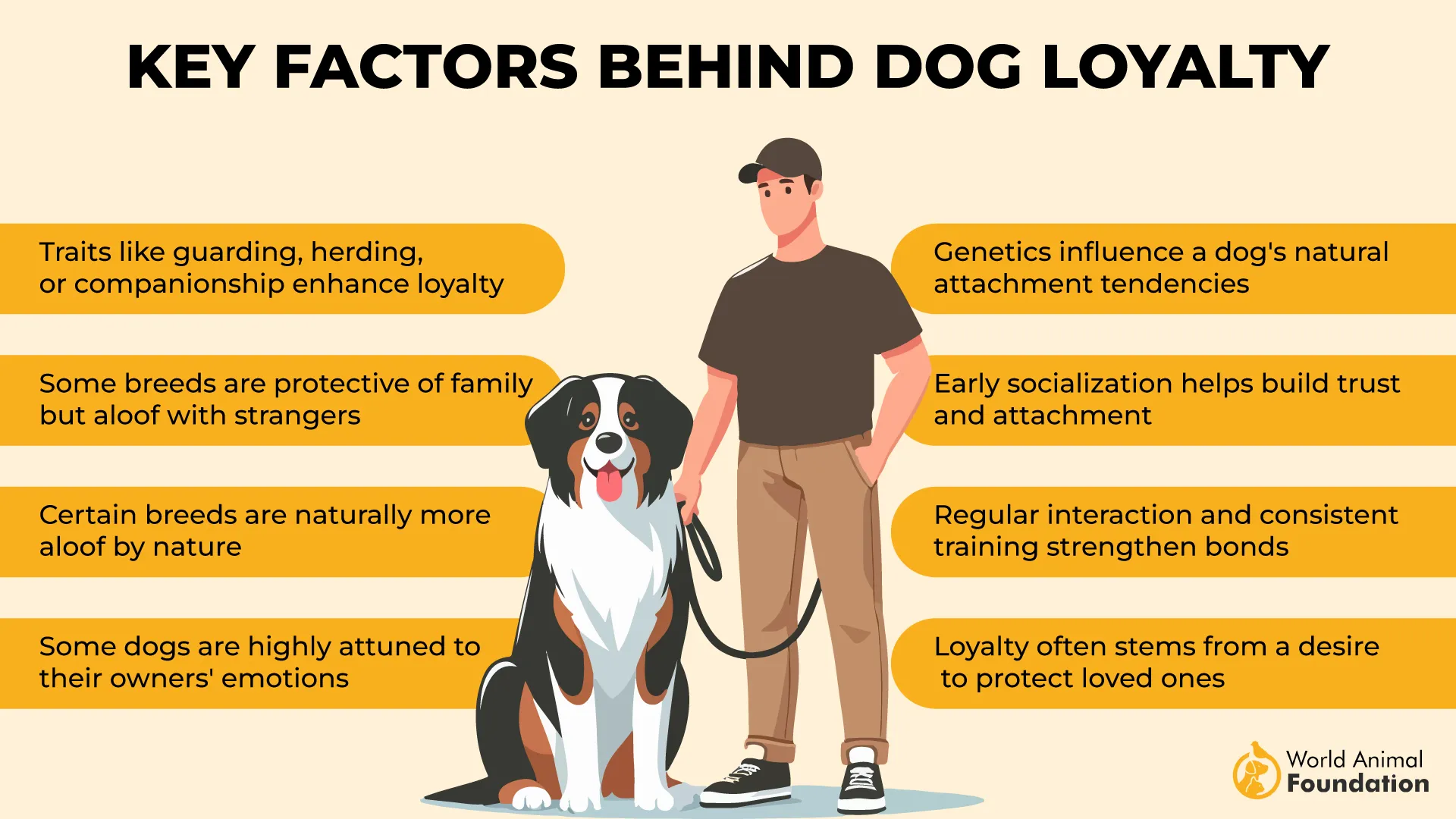
Ancient roots: Thought to be one of the most ancient breeds, some folklore even suggests Afghan Hounds were aboard Noah’s Ark.
Sight hound abilities: Their vision is razor-sharp—these dogs hunt using their eyes rather than scent.
Unique hip anatomy: Their elevated and wider-set hips help them sprint across rocky, uneven terrain.
Natural fragrance: Some have scent glands near their cheeks that release a subtle, musky sandalwood-like aroma.
Strong prey instincts: They have a high prey drive, which means cats, rabbits, and smaller pets may not be safe unsupervised.
Training challenges: Their own personality leans toward independence, so consistent, gentle training and exercise are key.
They don’t crave constant affectionate actions or tough play, but they do thrive in environments where their need for mental stimulation and gentle companionship is respected. If you’re looking for a low maintenance dog emotionally, but are okay with the grooming upkeep, this could be the right dog for you.
2. Chow Chow
The Chow Chow commands respect without even trying. With its distinctive appearance—a thick lion-like mane, deep-set eyes, and a curled tail—it’s no surprise this dog turns heads.
But beneath that dignified exterior is a complex personality. Chow Chows are deeply loyal to their people but tend to keep a polite distance from strangers and children alike.
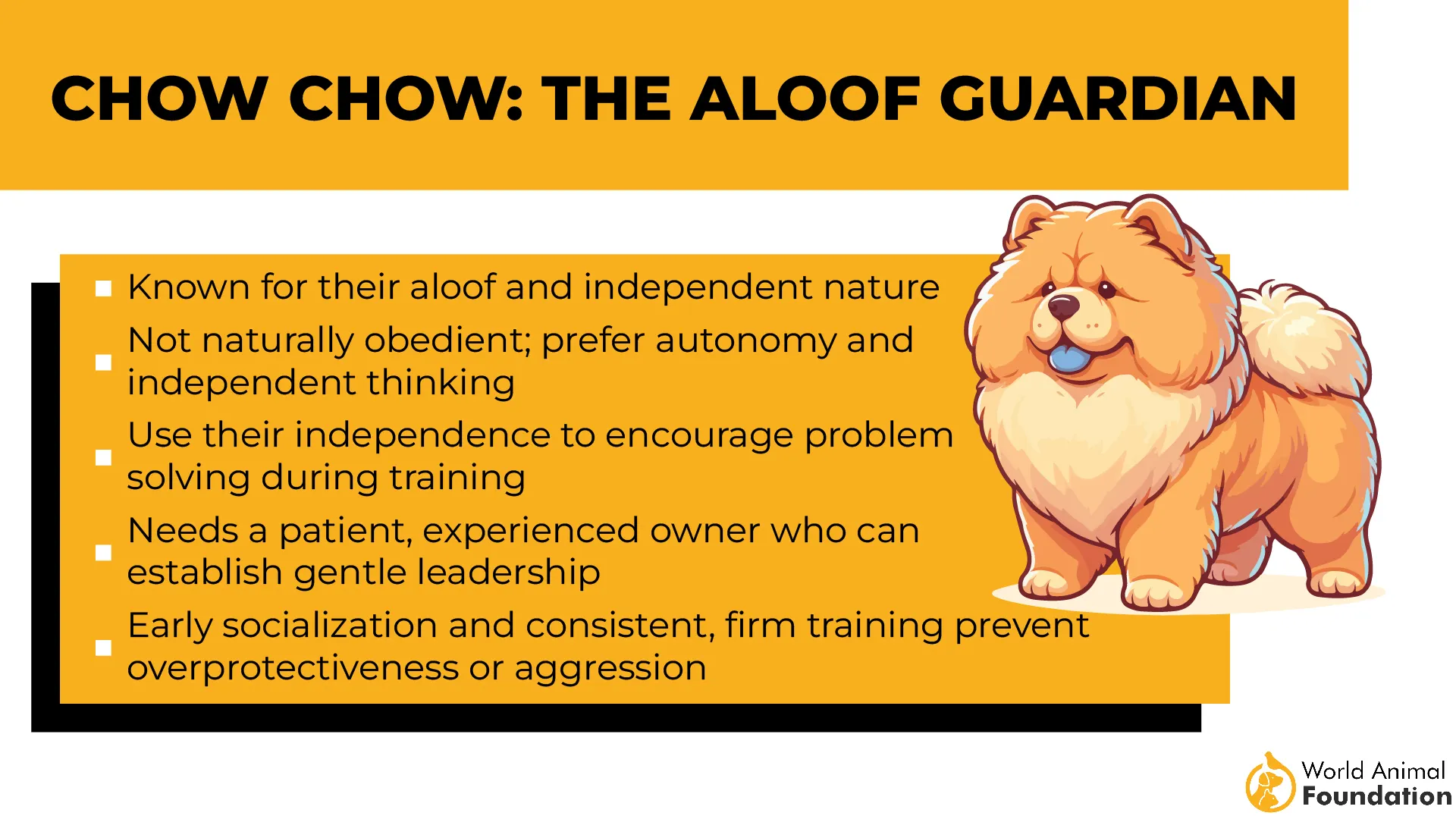
They don’t enjoy the chaos of active homes and usually prefer the calm consistency of families with older kids or people who understand that affection, with this breed, must be earned. Their quiet, watchful demeanor makes them better suited to households where space and boundaries are respected.
Stilted gait: According to PetMD, their unique, stiff-legged walk sets them apart from other dogs and gives them a slow, deliberate stride.
Dense double coat: Requires regular grooming, especially in warmer climates, and comes in both rough and smooth varieties.
Working history: Originally bred in China for herding, hunting, and even pulling carts—this is a true working dog at heart.
Independent streak: With the right training, they can be socialized, but they naturally crave autonomy and space.
Chow Chows aren’t interested in being the life of the party or a constant source of fun. They’re more like the quiet guardian of the house—low-drama, observant, and self-sufficient.
For owners who want a dog that’s more companion than excellent playmate, and who don’t mind investing in socialization and daily grooming, the Chow Chow has a strong sense of self and quiet charm.
3. Shar Pei
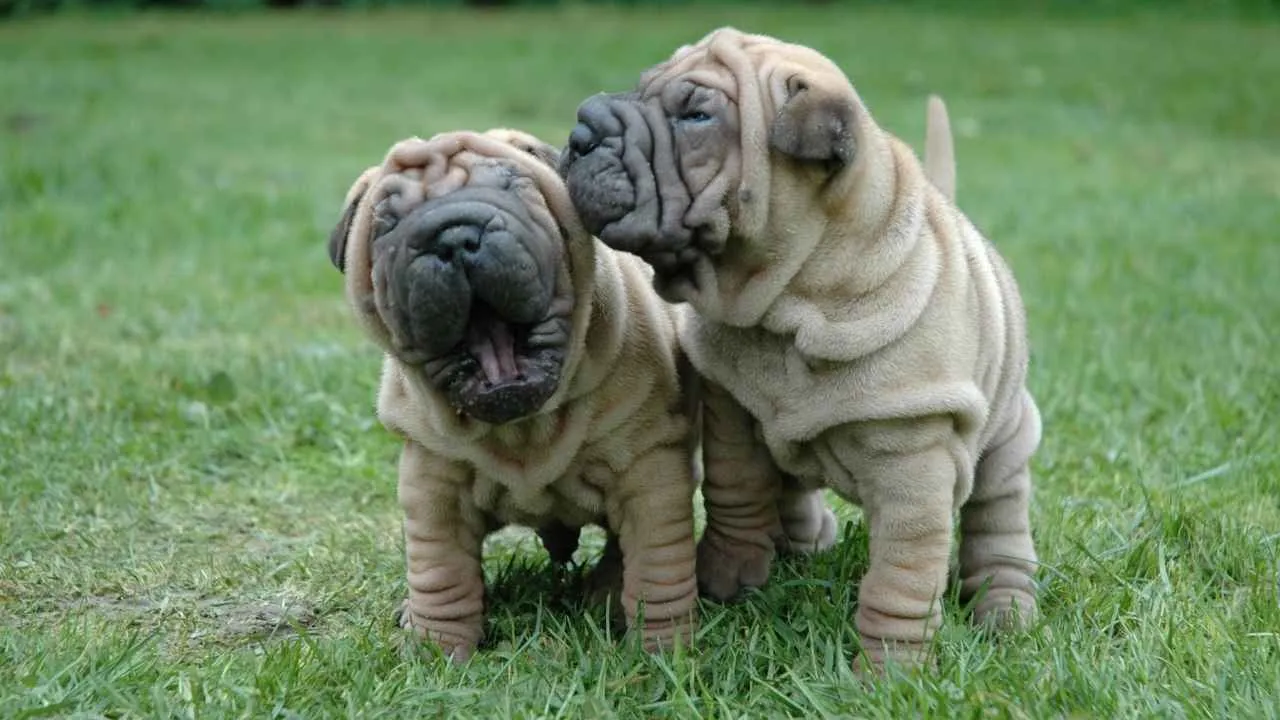
The Shar Pei doesn’t beg for attention, but it commands it. With its deeply wrinkled skin, confident stance, and guarded demeanor, they give off an air of quiet authority. Shar Peis form strong bonds with their owners and can be extremely loyal, but they’re not the type to smother or seek constant praise.
They’re cautious by nature and tend to keep their circles small, which makes them more compatible with families who appreciate structure and a more calm demeanor in a family member.
They need early socialization with other pets to grow into well-rounded dogs—and adults are typically better suited for the kind of patient, proper training that helps them get there.
Protective wrinkles: Their signature deep folds—especially in puppies—served as defense during scuffles, making them tough targets.
Blue-black tongue: A rare trait shared with only a few other breeds, it hints at their possible shared ancestry with Chow Chows.
“Sand skin” coat: Their name refers to the texture of their fur, which feels like rough sandpaper to the touch.
Historical significance: With roots dating back over 2,000 years in southern China, this is a dog with a rich, documented life story.
Low-energy lifestyle: They don’t need much exercise, which makes them a good match for apartment dwellers or less active lifestyles.
If you want a dog that’s gentle but not clingy, protective but not aggressive, and content with peaceful routines for outdoors, the Shar Pei might be the right fit. This isn’t a high-energy pup for the park—it’s a composed, intelligent companion that respects boundaries and expects the same in return.
4. Basenji
The Basenji is unlike most dogs—in all the best and weirdest ways. Nicknamed the “barkless dog,” they communicate in yodels, howls, and an entire range of sounds that defy expectations.
Despite their small size and big personality, Basenjis aren’t the type to blend into the background. They’re incredibly curious, full of boundless energy, and known for getting into trouble if left bored or unsupervised.
Their cleverness requires an engaged, patient adult—someone who enjoys a challenge and has exercise needs. While their playful nature might make them seem like excellent family dogs with kids, Basenjis generally prefer a more predictable environment and don’t respond well to rough play or loud chaos.
Self-cleaners: Basenjis groom themselves obsessively, like cats, and carry little to no doggy odor.
Instinctive hunters: Bred in Africa for flushing and retrieving prey, they’re quick, clever, and driven.
Standout looks: From their tightly curled tails to the alert, wrinkled foreheads, Basenjis look as sharp as they act.
Not water fans: Unlike Labrador retrievers or other water-loving dogs, most Basenjis avoid swimming at all costs.
If you can match their energy level and give them the mental stimulation they crave, you’ll have a one-of-a-kind dog that keeps life entertaining, unpredictable, and never, ever dull.
5. Saluki
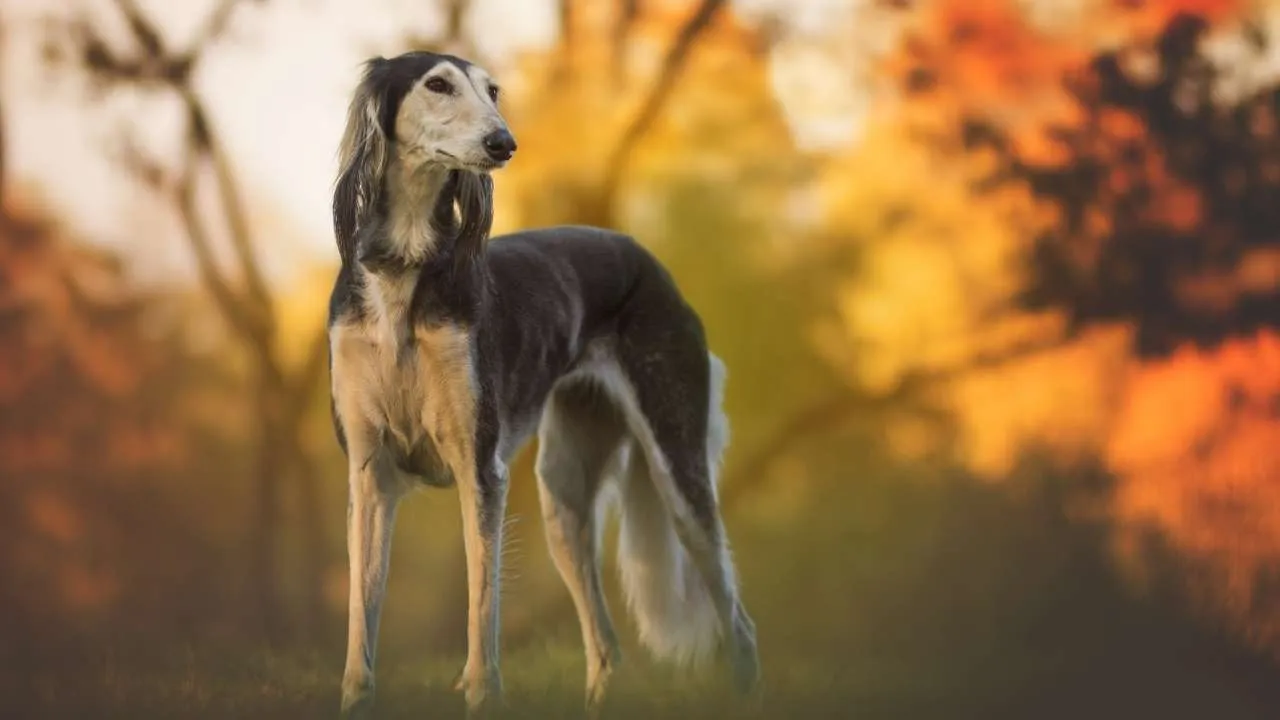
The Saluki blends ancient nobility with quiet devotion. This elegant sight hound moves with fluid grace and maintains a serene presence in the home. Salukis are deeply affectionate, though their bond often centers on a single, trusted human.
They don’t thrive in noisy or unpredictable environments, which is why they’re far better suited for calm, adult households than homes with small children.
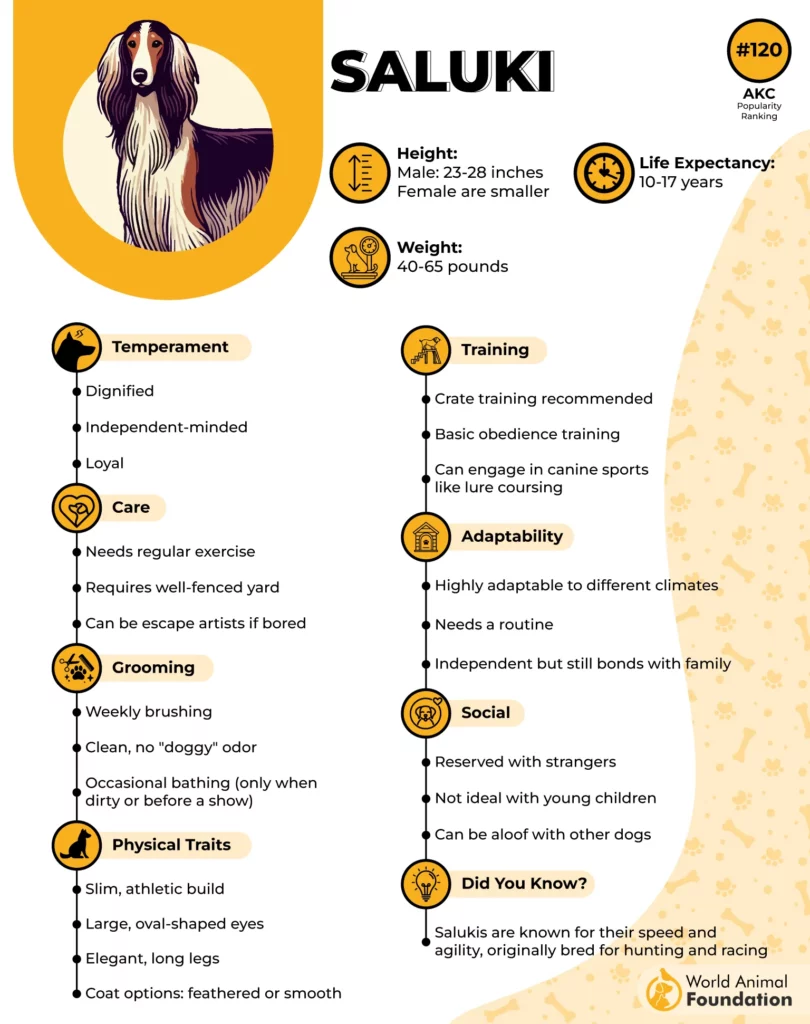
Their refined, almost aloof demeanor isn’t coldness—it’s a quiet confidence. Salukis require daily movement to stay balanced, making them perfect for outdoors and daily exercises with active families who understand their sensitivity and subtle emotional needs.
Ancient royalty: In ancient Egypt, Salukis were so revered that they were sometimes mummified alongside pharaohs.
Visual hunters: These dogs track with their eyes, not noses, and were once prized for hunting gazelles in open desert terrain.
Lightning speed: Exceptionally fast and agile—one Saluki even made the Guinness Book of Records, clocking in at 42.8 mph.
Delicate digestion: Especially in puppies, their digestive systems require specialized feeding routines and care.
The Saluki is not a dog for chaos or playful confrontation. They flourish in households where their need for space, consistency, and physical activity is respected. With the right dog-loving adult, they become steady companions who combine the elegance of a show dog with the heart of a lifelong family member.
6. Shiba Inu
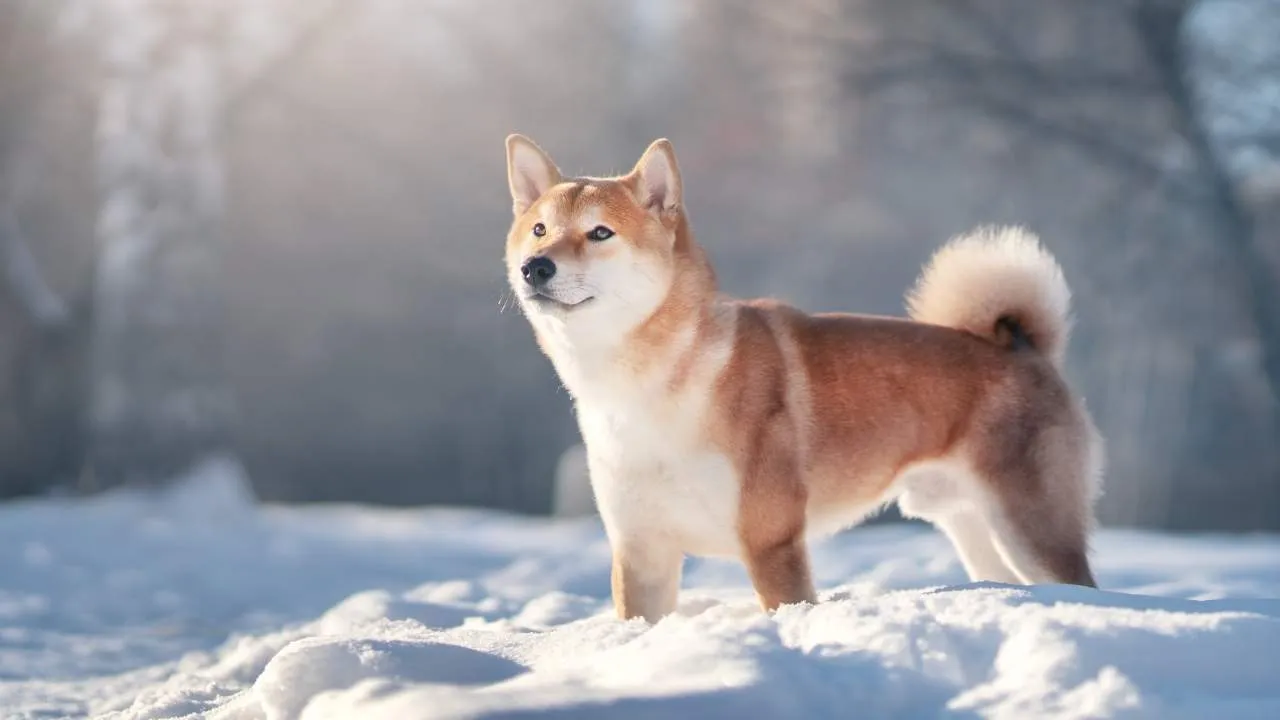
The Shiba Inu is a compact powerhouse—independent, clever, and full of attitude. Known for its fox-like appearance, it carries itself with confidence and a touch of mischief. Shibas have strong opinions, and they’re not afraid to express them. That infamous “Shiba scream.” It’s real—and it’s loud.
According to WebMD, while their small size might suggest they’re good family dogs, Shibas don’t always tolerate the unpredictable energy levels or handling styles of young children. They prefer a structured, respectful environment—one more common in adult households.
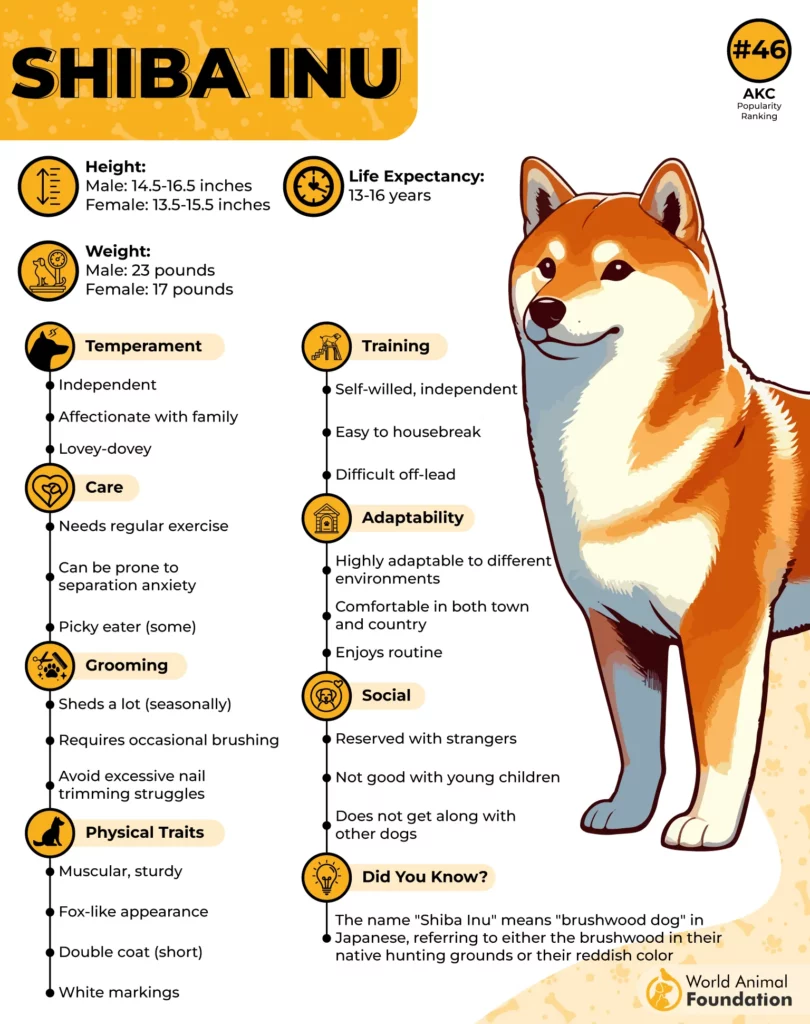
Historic recovery: The breed nearly vanished during WWII due to war and a distemper outbreak, but devoted people brought them back from the brink.
National icon: In Japan, Shibas are recognized as one of six official native dogs and are regarded as a national treasure.
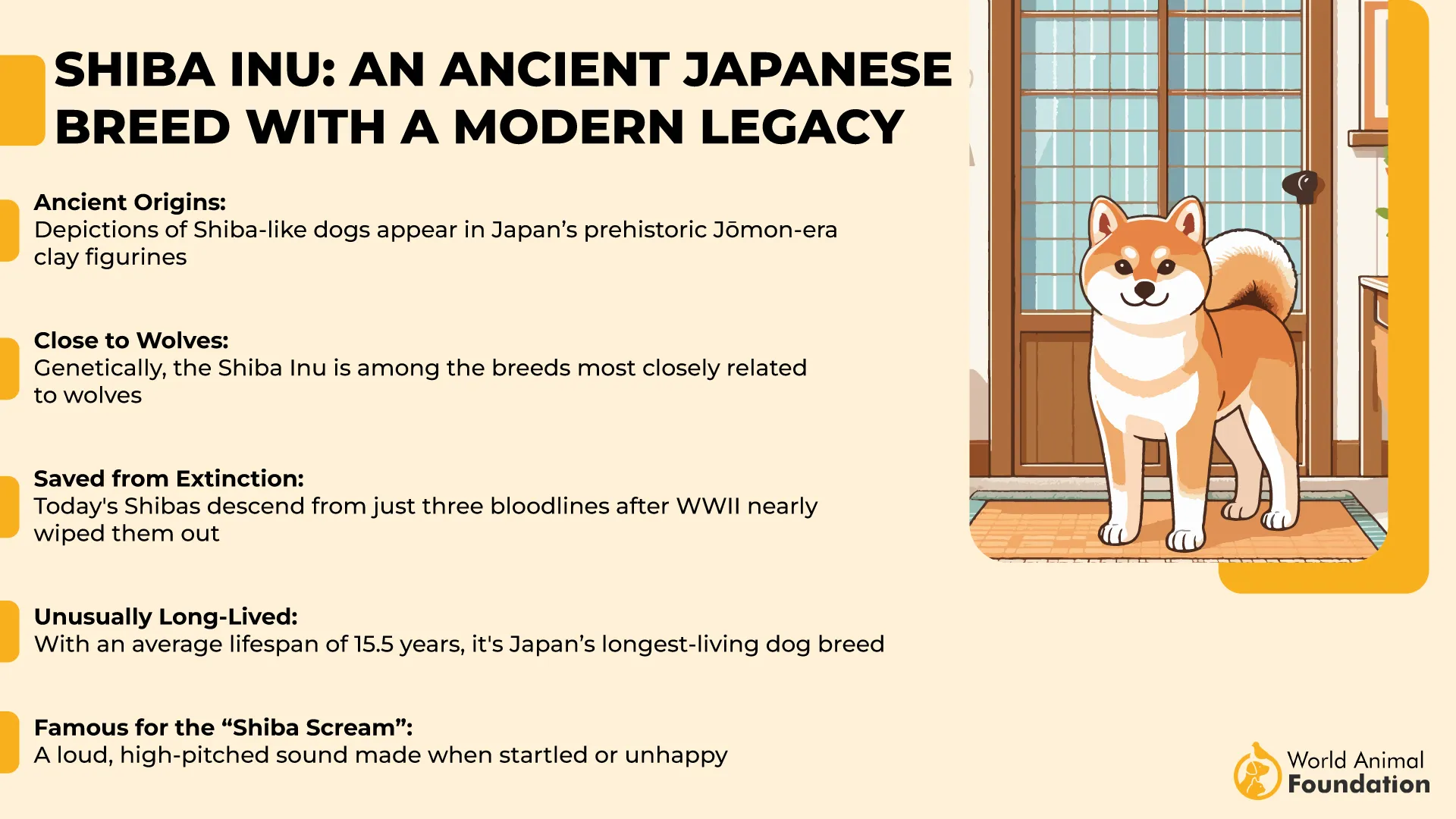
Distinctive vocalizations: The Shiba scream isn’t just a myth—it’s a high-pitched yelp that kicks in when they’re upset or overexcited.
Clever escape artists: With their high intelligence and agility, they’re notorious for slipping out of yards or harnesses if not watched closely.
Striking looks: Their upright ears, almond-shaped eyes, and curled tail give them a sharp, unmistakable presence that turns heads.
They’re not into constant attention or snuggly clinginess. What they want is mutual respect, a sense of autonomy, and a confident owner who can keep up with their sharp mind. For the right adult, the Shiba is a smart, stylish, and surprisingly affectionate pet—as long as you’re not expecting blind obedience.
7. Borzoi
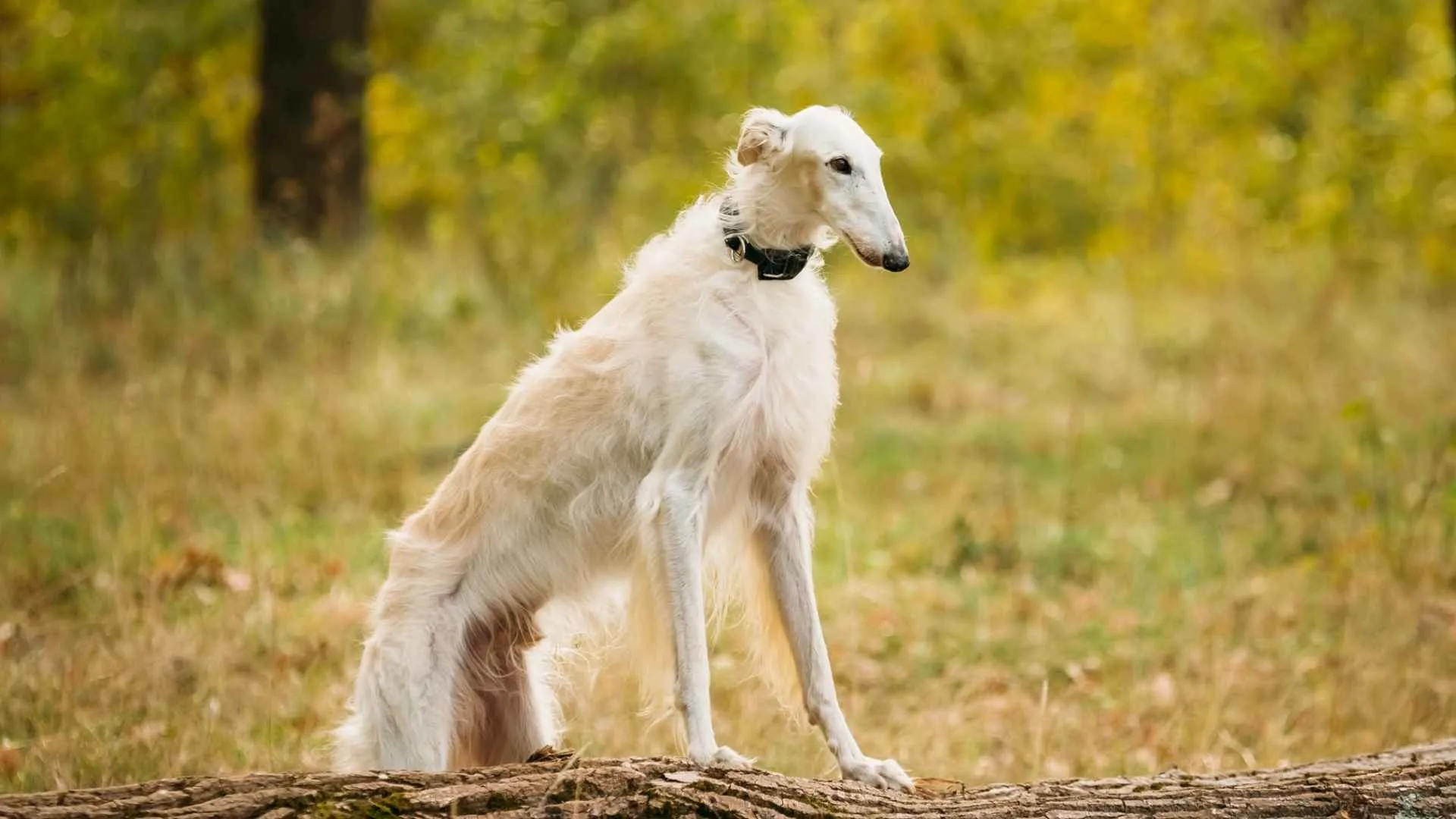
The Borzoi blends aristocratic grace with a quiet, contemplative soul. Once favored by Russian nobility for their speed and hunting prowess, Borzois are as dignified in temperament as they are striking in appearance.
Borzois enjoy their outdoor adventures, but after a long run, they’re more than happy to claim a soft spot on the couch. Their long coat does require upkeep, but it’s a small trade-off for their elegance and laid-back presence.
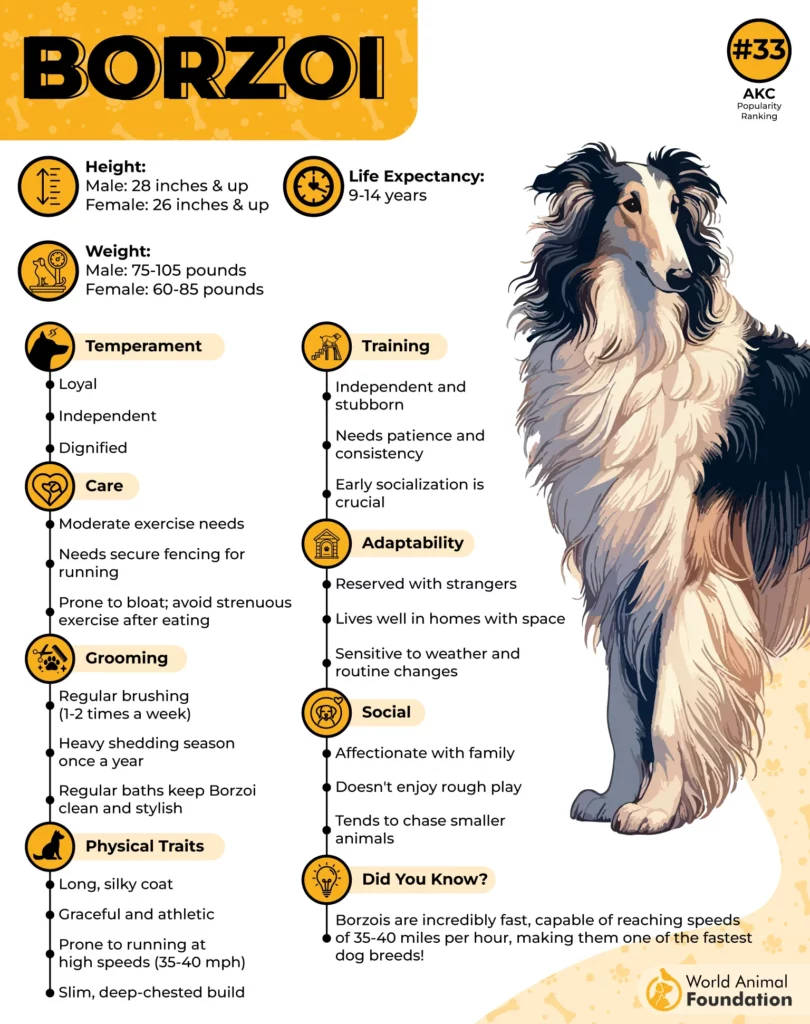
Revolutionary symbol: Once associated with the upper class, Borzois faced persecution during the Russian Revolution due to their aristocratic ties.
Laid-back watchdogs: They may alert you to a visitor, but they’re not instinctively protective or territorial.
Prey-driven instincts: Like many sighthounds, Borzois have a high prey drive and should be leashed during walks to avoid chasing other animals.
Surprising chill factor: Despite their athletic background, Borzois are known as refined couch potatoes, enjoying long naps after short bursts of energy.
High-maintenance coat: Their silky, flowing coat requires frequent brushing to prevent tangles and mats—an essential part of Borzoi grooming.
The Borzoi isn’t the kind of pup who’ll chase a ball for hours or play tug-of-war with the kids. This is a dog that values stillness as much as motion. For owners who understand that a gentle, observant companion can be just as rewarding as a playful one.
Conclusion
Choosing the right dog for your home isn’t just about looks or popularity—it’s about energy, temperament, and how that animal fits into your everyday life. Some may not be ideal for kids, but can be a great fit for families who value calm companionship and respectful space. Others bring bold personalities and strong-willed independence that require patience and understanding from their humans.
While many of these may not be the best match for busy households and families with small kids, they still bring immense value to the right families. These dogs are deeply affectionate, quiet, and a unique bond forms over time and mutual respect. They often thrive on daily exercise, structure, and an environment where their traits are not only accepted but truly appreciated.


